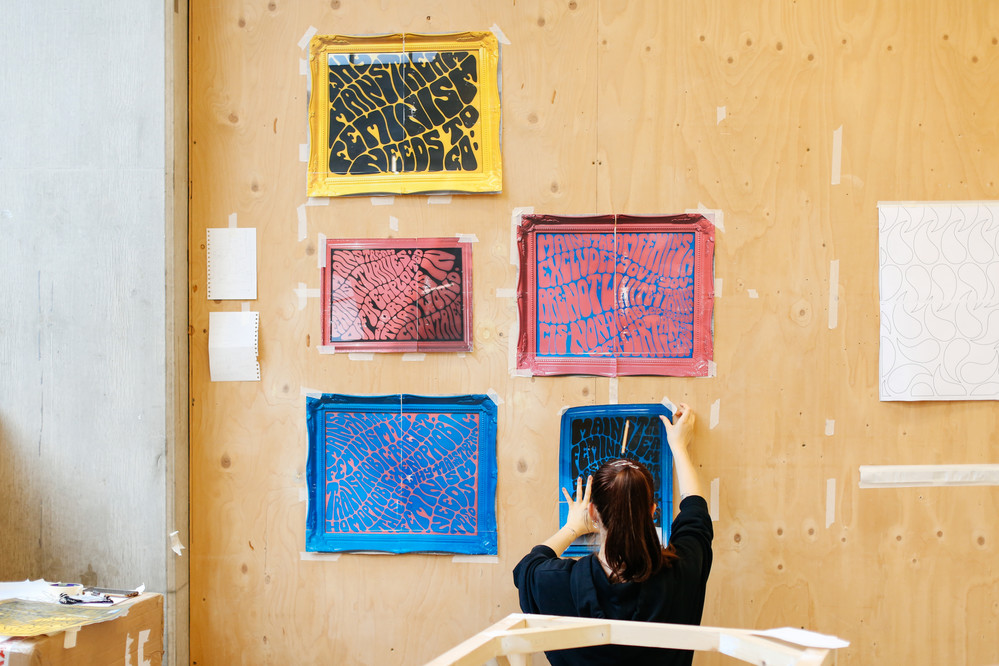Daniella Jenkins is a PhD researcher leading on work to help design a pension that reflects the working lives and life patterns of women – who currently lose out in a UK pensions system that privileges male recipients.
The Feminist Pension project, jointly funded and supervised by UAL and King’s College London (KCL), sets out to understand why British pensions policy is gendered and what can be done about it. By bringing the lived experiences of a diversity of women to the forefront, this work aims to reframe pensions and design interventions that serve women’s needs and the actions that would be required to sustain a gender equal pensions environment.
In her previous paid roles Daniella has led policy and change programmes in organisations including Aviva PLC, the Association of British Insurers and Transport for London. Her unpaid roles include raising three children, one with disabilities.
Her interest in pensions inequalities was sparked by the contradictions she encountered working in industry, while observing the financial challenges that women faced in their own lives. Using these insights, she brings extensive experience in financial services and deep knowledge of the policy issue to the research. Daniella's study offers women the opportunity to get involved, to help develop new ideas about pensions.

UAL and KCL researcher Daniella Jenkins
My aim is to speak to a broad cross section of people about how they feel about their futures. I am looking for 40 self-identifying women (birth assigned gender is irrelevant) born from 1980 to 1995. Participants should have lived in the UK for at least 10 years in order to have some knowledge of the system - although no knowledge of pensions is needed.
I am particularly keen to hear from people who are based outside of London and those with diverse employment patterns e.g. contract workers (including in Universities), gig workers and freelancers etc.
Sisters and the pay gap at the 2021 Labour Party Conference
On 28 September, Daniella spoke at a fringe event as part of the 2021 UK Labour Party Conference in Brighton, presenting her work on the feminist pension project as part of the event 'Sisters & the pay gap', hosted by Fabian Society and Fabian Women’s Network.
Daniella was joined by Shadow Chancellor Rachel Reeves MP, Gail Cartmail from Unite the Union, Dr Kindy Sandhu, Fabian Women's Network Vice-Chair, and Dr Tina Skinner from University of Bristol.
Why design a feminist pension?
There are a number of gendered disparities in current UK pensions.
Full State pension entitlement relies on decades of National Insurance Contributions (NICs) – which assume more typically male patterns of continuous employment. Women are also more likely work in the sorts of low paid roles which do not meet the threshold for auto enrolment into occupational pensions.
For women who do have employment-based occupational pensions, the most common form of occupational pensions in the UK are Defined Contribution schemes (DC). DC schemes are more likely to transfer gender pay inequalities into retirement income. This is because employment breaks and periods of part time work - which women are more likely to have - reduce the amounts contributed into pensions. Actual rather than average earnings over a career lifetime are taken into account.
The overall impact of lower pensions income is magnified because women have longer life expectancy - meaning that women live for longer on less money.
The causes of gender differences in pensions outcomes have largely remained the same over time - pensions have been designed around typically male life courses and exclude unpaid work including domestic, care work and childcare. At the same time, occupational and salary discrimination translate workplace inequalities into retirement income.
The overall result is that UK women statistically have smaller pensions than their male counterparts regardless of salary, marital status or education.
More about the project
This research is positioned at the intersection of social policy and design - an approach which is growing in influence and looks to use design and innovation to solve complex problems. It is supervised by leading academics from both design and social sciences – UAL’s Professor Lucy Kimbell (Social Design Institute) and Dr. Rebecca Bramall (London College of Communication, UAL); together with KCL's Professor Pat Thane.
Visit the feminist pension project website to find out more.
Main image: Installing feminist posters on frames BA Graphic Communication Design at Central Saint Martins UAL. Photo © Alys Tomlinson

